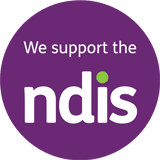Specialised support for NDIS participants with high medical needs

Bulk-billed GP

Registered NDIS Provider

The team at SeenCare includes bulk-billing GPs, in-home nurses and specialist disability support workers. This allows us to deliver unique, comprehensive and coordinated post-discharge services for NDIS participants with high medical needs.
No matter whether a person with disability is dealing with a new injury, acute illness, or chronic condition, we can help.
The post discharge period is considered a “high-risk” time in every patient’s care journey.
Research shows that during the first days and weeks after leaving hospital, people are at significantly increased risk of health complications that can lead to harm and bring them back to hospital.
Therefore, post hospital care (also known as post discharge support) can refer to a range of activities designed to support an individual's transition from hospital to living in the community.
Post hospital care is especially important for people living with disability, as they often face additional barriers to accessing adequate medical care and support compared to the general population.
At SeenCare, our mission is to make high-quality community nursing and medical support more accessible for NDIS participants.
Some of the most common post discharge supports in Melbourne we provide are listed below.
For people with limited mobility or cognitive impairment, getting to a medical clinic for regular wound care can be challenging, time-consuming and stressful.
Our experienced registered nurses can:
Being unable to safely manage high-risk medications—such as blood thinners (warfarin) and diabetes medications (insulin)—can lead to poor health outcomes and extended hospital admissions.
The team at SeenCare is able to:
A well-executed home rehabilitation program can enhance recovery and reduce the time a person needs to spend in hospital.
To give people with disability the best chance of maintaining independent living, we can:
Deterioration in chronic conditions like COPD, heart disease and diabetes often result in avoidable readmissions to hospital.
We support NDIS participants to:
Serious and/or ongoing health conditions often require input from several doctors and health professionals.
SeenCare is a registered NDIS service provider that improves outcomes by:
Proactive monitoring can make the difference between a person staying well and remaining at home or ending up back in hospital.
The GPs, nurses and support workers on our team can:
If you don’t see what you need, please give us a call.
We can develop individually tailored packages of care for people with unique medical needs.
The NDIS describes transitions of care as the movement of people between places or services providing care, such as disability support services and hospitals.
They further explain:
“Transitions of care are key points where there is risk of harm to participants. In Australia, problems in transition of care have been associated with risks of harm to people who have a disability.”
Most problems in transitions of care centre around poor communication.
Some examples include:
Because the leadership team at SeenCare have experience working in both hospital and disability services, we understand how to safely manage transitions of care.
Our disability support workers all receive specialised training and supervision for working with people with medical needs. We’re also a fully registered NDIS provider with the NDIS Quality and Safeguards Commission. And we have robust policies and procedures in place to ensure effective transitions of care with hospitals and healthcare services.
The model of integrated health and disability supports delivered by SeenCare has several distinct benefits for hospitals and NDIS participants.
For Hospitals:
For NDIS Participants: